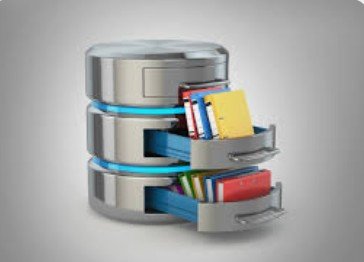Bedrock Security, the frictionless data security company, unveiled its comprehensive data security platform. Empowering organizations to effectively manage data risk introduced by cloud and generative AI (GenAI), Bedrock continuously discovers, manages, and protects sensitive data.
Bedrock Security Unveils the Industry’s First Frictionless Data Security Platform, Announces $10 Million in Seed Funding
Pranava Adduri, CEO & Cofounder, discuss how Bedrock Security, the frictionless data security company, is revolutionizing data security in the cloud and GenAI era with its leading data security platform powered by the industry’s only AI Reasoning Engine (AIR).
SecurityDive.in: How does Bedrock Security’s AI Reasoning (AIR) Engine differentiate itself from other data security solutions in identifying and protecting the most critical data?
Traditional approaches to data security rely on rules for identifying regulated data and intellectual property. However, rules don’t work when your data changes and new types of data are introduced, especially in today’s explosive data growth for cloud and GenAI.
AI Reasoning (AIR) uses the latest in AI to reason about what data is most material and important to a business and allows Bedrock to keep pace with new data as it’s being created.
SecurityDive.in: Can you elaborate on how Bedrock Security ensures that regulated data and core IP are not ingested into modern LLM architectures, and how this sets the company apart from its competitors?
To ensure regulated data and core IP are not being ingested into LLM architectures, it’s crucial to reliably identify and track them first; this is where AIR comes in. Bedrock combines AIR with a second technology, Trust Boundary data perimeters to contain the where regulated data and core IP are allowed to be used.
Organizations can use Trust Boundaries to identify, monitor and contain how regulated data and core IP are being used by the business to avoid inadvertent leakages into LLM model training or indexing in the case of RAG-like knowledge systems.
SecurityDive.in: What specific industries or sectors does Bedrock Security target with its comprehensive data security platform, and how does the platform cater to their unique needs?
Bedrock serves the banking, insurance, healthcare, retail and financial services industries that need to protect regulated data. Bedrock additionally serves vertical use cases involving genomics, EDA and CAD formats, given its ability to understand proprietary intellectual property formats.
SecurityDive.in: How do Bedrock Security’s patented technologies, such as Adaptive Sampling and Trust Boundaries, contribute to minimizing response times while maintaining accuracy in Data Detection and Response (DDR)?
Responding to data risks requires keeping pace with ALL the data an organization creates and to also keep pace with how it is being used and moved; traditional approaches can’t continuously scan at today’s data volumes. As a result, identifying risks to regulated data and core IP is a manual process that occurs by accident, or worse, during a breach notification.
Adaptive Sampling is a patented methodology for rapidly discovering and learning data at petabyte scale. Since Adaptive Sampling allows for continuous discovery and Trust Boundaries allow you to specify how your regulated data and core IP may be used and accessed, any violations of controls are detected near real time, allowing security teams to rapidly spring to containment versus waiting for leaks to become breaches or fail compliance control audits.
SecurityDive.in : Can you provide an example of how Bedrock Security’s platform helps organizations reduce identity overprovisioning for data access and minimize stale data, and how this ultimately contributes to risk surface minimization?
Bedrock Security’s platform empowers organizations to effectively mitigate the risk of identity overprovisioning and minimize the presence of stale data, key factors in reducing the overall risk surface associated with data access. At its core, Bedrock conducts a thorough analysis of user entitlements, roles, and group memberships to identify and understand the actual usage patterns within the organization.
This enables Bedrock to pinpoint roles that are underutilized or unnecessarily broad, suggesting more suitably scoped, least-privileged roles for users needing access to specific datasets. This approach ensures that individuals only have access to the data essential for their roles, preventing unnecessary exposure of sensitive information.
Furthermore, Bedrock’s proactive capabilities extend to the identification and management of stale datasets that are no longer in active use or have not been accessed for an extended period.
Recognizing these datasets as potential security liabilities, the platform can automatically restrict access or quarantine them, significantly reducing the opportunities for unauthorized access or data breaches.
SecurityDive.in As Bedrock Security has raised $10M in a Seed Round led by Greylock, what are the company’s plans for growth and expansion, and how does it intend to allocate these funds to further develop its data security platform?
Bedrock has built the first data security platform for the cloud and GenAI era; our raise will further our R&D into AIR and our go to market efforts, including the delivery of a world class customer experience.
Bedrock is a different data security company, designed to enable organizations to build a frictionless and robust data security program amidst today’s exponential data growth and usage.Unlike legacy solutions, Bedrock protects information, such as regulated data and core IP, ensuring it’s not ingested into modern LLM architectures.



